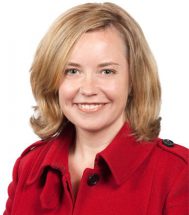The NSW election will be a pivotal one for local governments across the state, the head of the peak body for NSW councils says.

Local Government NSW (LGNSW) is campaigning on 12 priority areas for the March 23 state election around community, financial independence for councils and governance.
LGNSW President Linda Scott says one of the key issues will be waste, with councils fighting to have all of the state’s waste levy channeled back into recycling, after China’s National Sword Policy restricted the importation of recycled material leaving the state in the lurch.
She also nominated water utilities, libraries and electoral funding as key battlegrounds for local government.
“On behalf of the state’s 128 councils this is a pivotal state election,” Cr Scott said in an interview with Government News on Monday.
“Whether it’s because of the China Sword decision to stop taking the world’s recycling or the drought covering 100 per cent of our state, this is a critical state election for the future of all parts of NSW and our local governments.”
LGNSW is calling on all parties to commit to reinvesting 100 per cent of the NSW waste levy, which is estimated to net more than $720 million a year, back into recycling and creating a circular economy.
The battlegrounds
According to the Australian Council of Recycling (ACOR), which supports the LGNSW campaign, only 10–15 per cent of the levy goes back to recycling.
A spokesman for environment minister Gabrielle Upton did provide details of the percentage reinvested but said $802 million is being invested through the NSW Government’s Waste Less Recycle More program, which is supporting 1,160 projects and diverting 2.39 million tonnes of waste from landfill.
The Coalition has declined to come to the party on the waste levy but Labor says it will commit $140 million over four years. The Greens back the call for a 100 per cent reinvestment.
“We are calling on the Premier to match this commitment from Labor and to reinvest the money for the purpose for which it was collected,” Cr Scott said.
“We would always like to see a stronger commitment but we welcome some of the commitments of the minor parties to reinvest 100 per cent of the waste each year into waste and recycling.”
“We have a golden opportunity to turn a crisis into an opportunity and invest existing funds to grow a new domestic recycling industry, new jobs for regional NSW and a more sustainable future.”
LGNSW also wants more money for the state’s libraries and is calling a 50-50 funding arrangement to be restored.
“Library use is growing as the population grows and people are accessing services online,” Cr Scott says.
“They are a really important community hub and that’s why we’re working so hard on libraries as well.”
NSW Local governments also welcomed the government’s pledge to create a minister for public spaces if elected, but Cr Scott says without funding it will be a hollow announcement.
Governance and donations
Meanwhile, LGNSW wants to see the Intergovernmental Agreement between state and local government, which lapsed under former Premier Barry O’Farrell, revived to ensure local government is treated as an equal partner and to enable stronger collaboration between the two tiers of government.
“It’s important for there to be a strong intergovernmental agreement between local government and the state to work collaboratively on all issues … whether it’s libraries, public parks, festivals or water.
“There’s a huge breadth of issues where local and state governments have to work together for the good of the community and a clear intergovernmental agreement will support that.”
Another hot button issue for councils relates to the current laws around electoral funding and donations.
Cr Scott says there are many problems with current electoral laws as they affect local government, including the imposition of donation caps on council elections.
She says with local government elections in NSW 18 months away it’s imperative that whoever forms the next state government amends the electoral funding and donations legislation to restore public faith in the electoral system and give local government candidates “the ability to campaign and raise funds within a system that’s based on fairness”.
LGNSW is also looking towards the federal election, which is expected to be called some time after the April 2 federal budget is handed down, and where federal assistance grants will be at the top of councils’ wish list.
NSW councils want to see grants restored to one per cent of Commonwealth tax revenue, the level they were at under former Prime Minister Paul Keating, Cr Scott said.
“They are now about half of that,” she said. “Without untied infrastructure funding it is very difficult for NSW councils to keep pace with the growth in population that our metropolitan councils are experiencing, and to manage in regional areas where there’s a lack of population and a lack of a rate base”.
Comment below to have your say on this story.
If you have a news story or tip-off, get in touch at editorial@governmentnews.com.au.
Sign up to the Government News newsletter.





Leave a Reply